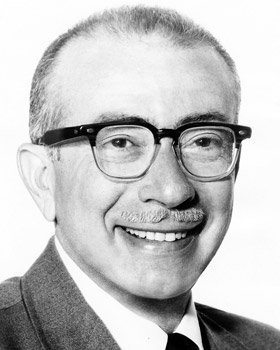

#Msnbc time and again sherwood schwartz tv#
TV producer Sherwood Schwartz goes even further, claiming that the reason the quality of television was higher in the 1950s than in the 1960s was that, in the ‘50s, "The networks were conduits and they had no control of programming. Heldenfels points out that single sponsors were more patient than network executives, willing to wait for good ratings-or they settled for lower ratings because a show increased the sponsor's prestige. In his book Television’s Greatest Year: 1954, TV critic R. The American Gas Association required a reference to "gas chambers" to be removed from the story for fear that it created negative associations with its product.īut there were surprising benefits to the 1950s arrangement. The Mars company, makers of M&Ms, instructed the producers of one of their shows not to let the scripts mention anything that competed with Mars candies-not even ice cream or cookies! A particularly chilling example of sponsors' editorial interference took place in a program about the trials of Nazi war criminals. Thompson writes in Television's Second Golden Age, "This arrangement led to some legendary stories of sponsor interference." Alcoa, producers of aluminum, would not let a tragic drama be set in a trailer park, because trailers are made of aluminum.

Steel Hour-they developed shows, produced them, and paid the networks to put them on the air.Īs Professor Robert J. Sponsors not only attached their names to the TV shows they sponsored- Kraft Television Theater, Goodyear TV Playhouse, The U.S. In contrast, the era that first became known as the Golden Age of Television was arguably pure advertising. Perhaps most significantly, the shows that stand out today- Mad Men, Game of Thrones, Homeland, Breaking Bad, and Spacey's own House of Cards-are produced for cable networks, premium channels, and private subscription services, with little or no advertising. In the first golden age, mistakes by the actors and mishaps in staging went out live to the TV audience-and the best-remembered dramas were complete, single-episode stories, written and directed as stage plays for the camera.
#Msnbc time and again sherwood schwartz serial#
TV dramas now are cinematic in their production values, carefully edited, and serial in their narrative structure. At the beginning of television, original prime time programming was only available on two and a half networks, CBS and NBC-with latecomer ABC the stunted offspring of NBC. In the 21st century, we have several national broadcast networks, hundreds of cable and satellite channels, and an increasingly dizzying array of video entertainment options emerging online. The first golden age of television took place at the beginning of the medium, over half a century ago-and at first glance, it could not look more different from the era we enjoy now. In the last decade, TV aficionados have begun to talk of a new golden age of television beginning around the turn of the century with HBO's The Sopranos.

Spacey isn’t the first to make the claim. The prime time Emmy Award nomination for outstanding lead actor went to film and stage veteran Kevin Spacey, who told an audience at the Guardian Edinburgh International Television Festival in August that TV has entered a “third golden age.” The star of House of Cards also got a nod. David Fincher, who directed the first episode, won the Emmy for outstanding directing. Most of the nominations Netflix garnered, including outstanding drama series, went to the hour-long political drama House of Cards, which debuted on the streaming service at the beginning of the year. The company's 38 million subscribers can stream the new videos to their computers, tablets, and smartphones, as well as their online TV sets. Netflix is the leading provider of on-demand Internet streaming media-and its "TV shows" are produced for the Internet. What was unprecedented was that the nominated comedies and dramas-now recognized as the highest quality available for television-are not for broadcast television. The number of nominations was not remarkable. Over the summer, Netflix made history, receiving 14 Emmy nominations for its original TV programming.


 0 kommentar(er)
0 kommentar(er)
